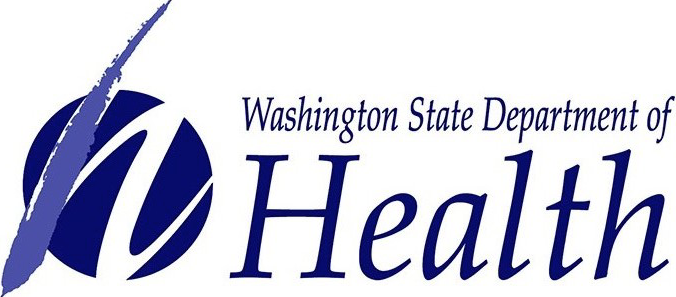 By Marilyn Gisser, Washington State Department of Health
By Marilyn Gisser, Washington State Department of Health
It takes a tireless dedication to help your community thrive and to assist those who struggle with health or social challenges. Often the work occurs in isolation and with limited feedback. Washington State received an overwhelming response when it offered to bring together individuals from across the state to talk, reflect, increase their knowledge, build relationships, and problem-solve about child abuse and neglect prevention strategies.
Essentials for Childhood (EfC) is a statewide initiative to ensure all children in Washington thrive in safe, stable, and nurturing relationships and environments. The initiative’s Community Stakeholder Education and Action Workgroup has been exploring ways to support community-based work and bring local voices into EfC.
Washington has a long history of local, multisector partnership working to promote child, youth, family and community health and well-being. Many local groups, such as early learning coalitions; after school programs; PTA groups, are working to address and prevent adverse childhood experiences (ACEs) and child abuse and neglect risk factors in their communities, promote protective factors, raise awareness, and change social norms, systems, and policies.
The workgroup members include leaders of some of these local efforts, and also includes directors of community coalitions and health department employees. The members felt isolated in their work and wanted a platform to bring people together to learn from each other and collaborate across communities.
The workgroup proposed launching a community of practice for individuals throughout Washington who have been actively raising awareness or building capacity at the community level for issues like toxic stress, ACEs, resilience, and health equity. A community of practice is a learning group where people share common experiences to discuss, reflect, increase their knowledge, and improve their practice related to a particular topic. An important component of a community of practice is building relationships with peers, learning from each other, and problem-solving together.
To assess interest in creating a community of practice and gain insight from potential participants on the design, workgroup members conducted more than 30 key informant interviews. The individuals interviewed were leaders of cross-sector, countywide groups or initiatives related to ACEs and trauma-informed approaches. Washington is a physically large, geographically split state between the Eastern and Western sides of the state. It can often be difficult to bring together people from the “other side of the mountains” to come and work together. The interviews included people from Eastern and Western Washington, including urban and rural areas.
Interviews confirmed the desire for shared learning and networking opportunities across communities. The most expressed interest was in regular participation in a community of practice that included a mix of in person and virtual meetings.
We launched the ACEs and Resilience Community of Practice with a five-hour event on April 26 in Tacoma, Washington. About 80 participants came from 14 counties from across the state. Attendees included individuals in health, child welfare, early learning, education and related community organizing fields.
They shared that they came to:
- Learn from each other
- Meet and build bridges with people doing similar work
- Learn solutions that have worked elsewhere
- Affirm they aren’t alone in their work
- Help integrate across sectors at the state level and in communities
Participants learned together and from each other. The morning included introductory networking to meet people and learn why they came, followed by interviews in groups of 3 people to learn about something each participant was doing and wanted to share.
In the afternoon, participants broke into groups to discuss topics that they put forth:
- Sustaining local collective impact efforts on trauma, resilience and toxic stress
- Training and outreach for parents
- Trauma informed approaches within systems (mental health, addiction, K-12)
- Leveraging the Maternal and Child Health Block Grant
- Utilizing workforce development to infuse trauma informed approaches
One participant said that this was the only opportunity she has had to talk with other community collective impact leaders working with an ACEs lens.
This event was a low-cost way to connect groups state-wide to meet and work together. Often organizations will help support this work with in-kind donations or direct funding. The event budget of about $10,000 covered facility rental, facilitation, lunch, and travel reimbursement for a few participants who needed help with travel costs. Registration was free.
The program evaluation was highly favorable, with nearly all respondents wanting to stay involved and to keep learning together. Most attendees met someone from another county who they plan to contact after the meeting. Due to the success of our initial meeting, we are planning a second event to continue to facilitate connection across the state.
We are planning a second event in Central Washington, to shift the burden of travel and make the event more accessible for a variety people. We are looking for resources to support ongoing events, communication and connection between events.
One lesson we learned was to start planning early, and not to put off setting an attendance goal, finding a venue, and publicizing the event. We delayed committing to a time and place until fairly late, because we were unsure about how many people would come. Not knowing how many people to plan for also made it hard to budget and complicated planning. We are thrilled that despite that, we had great turnout, and the invitation was forwarded well beyond our original distribution list. Now that we’ve learned that even with a fairly short registration window we were able to fill a space, and we’ve heard that people want to come back and others want to join, we can be more confident in our planning. An ongoing challenge will be finding ways to sustain our efforts and finding sponsors and staff who are dedicated to our cause.


